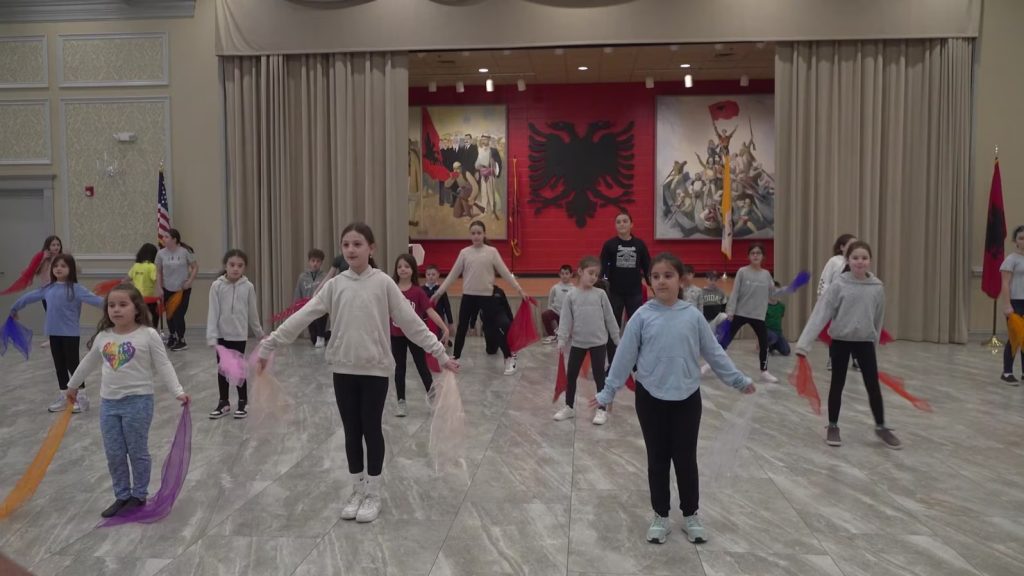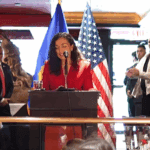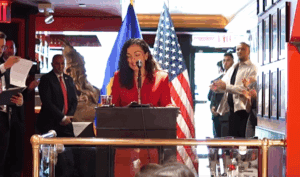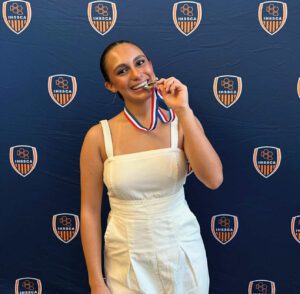One of the challenges facing the Albanian community in the United States is the preservation of language, culture, and tradition. Albanian-Americans try to preserve traditional Albanian dances for younger generations through various organizations, such as the “Gjergj Kastrioti” group in Michigan. Voice of America reported on an hour-long lesson by this group, which was created more than two decades ago.
More than 100 Albanian-American children of different ages attend Albanian dance lessons in classes organized by the folk group “Gjergj Kastrioti” in Michigan.
Classes are held once a week in the premises of the Albanian church of St. Paul.
Founded 23 years ago, the group initially aimed to transmit Albanian culture and tradition to young generations in Michigan, but today the mission has expanded, says choreographer Joli Agolli Paparisto.
“It was initially created like everything else created here away from the homeland, out of passion and desire. But today this is one of the most powerful groups of Albanian culture, folklore, and dance, representing almost the entire Albanian diaspora of America, not just Michigan. So it has taken on the colors of a professional group,” says Ms. Agolli Paparisto to Voice of America.
The Albanian-American community in Michigan is considered the second-largest Albanian community in the United States, after New York.
Members of the “Gjergj Kastrioti” group originate from various Albanian regions.
“I like to preserve the tradition and culture of my father and mother. I like to dance and show everyone my culture. I am the first generation to dance in this group. I know that my children and God willing, my grandchildren will also preserve this tradition and culture we have,” says Anxhela Corri, Albanian-American of Shkodra origin.
“It seems very good and beautiful to me that we are united in this community, all Albanians together, from many different places like Albania, Malësia, and Kosovo. We all unite as one community,” adds Emona Lulgjuraj, Albanian-American of Malësia e Madhe origin.
A part of the group will travel to Albania in June to participate in the national folklore festival in Gjirokastra, the city declared a world heritage site by UNESCO.
This is not the first time the group has traveled to Albania to participate in such activities.
The group’s choreographer says that participating in events like this fights the assimilation of new generations of Albanian-Americans.
“The fact that they are third-generation children says a lot. It shows that Albanian-Americans are stimulated. I know the saying, ‘Appetite comes by eating.’ The more activities we participate in, the more we preserve our culture and traditions,” says Ms. Agolli Paparisto./VOA








